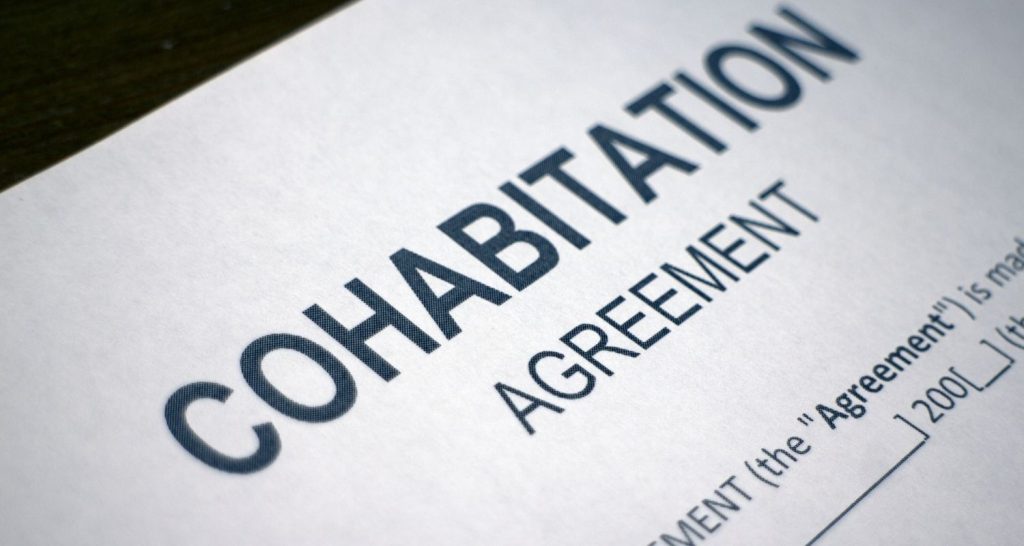Why should I have a cohabitation agreement?
Many couples believe that if they live together but are not married or in a civil partnership, ‘common law marriage’ protects them in the same way that married couples do. However, such legislation does not exist. This idea is false since couples who live together do not have the same legal rights as married couples or those in a civil partnership.
marriage’ protects them in the same way that married couples do. However, such legislation does not exist. This idea is false since couples who live together do not have the same legal rights as married couples or those in a civil partnership.
A cohabitation agreement might help you feel more at ease in your relationship. By reaching an agreement before or while you are living together, you will have a clear understanding of your financial obligations, avoid misunderstandings regarding your rights and responsibilities as you continue to live together, especially with regard to property ownership, avoid difficulties and disagreements if you split up, and have clear evidence of your intentions if you have to go to court.
Who does it protect?
In the event of a relationship breakdown, it can protect either of you or both of you. It may function similarly to a prenuptial agreement in that it specifies how one partner’s pre-owned assets will be divided with the other if the couple splits up in the future or if the property is held solely in the name of one party and another party moves in. It can make it clear to both partners that contributions to utility bills by one partner may not entitle them to a share of the property itself if the relationship ends.
It may also provide protection to the economically weaker spouse. For example, if you are a parent who has given up your career to care for your children and the family home is solely owned by your partner, your efforts to caring for the house and raising the children would be recognized as an equal contribution if you were married or in a civil partnership. If you are not married or in a civil relationship, you may be left with nothing, even if your spouse has financially supported you for many years.
If you own property together as cohabitees, the starting point is that it is split 50/50 on separation as joint tenants, even if one spouse paid much more to its acquisition, unless you make a formal agreement to declare differing shares (such as a tenancy in common). There may be exceptions, in which case you should seek legal counsel.
A cohabitation agreement is essential to ensure that your joint intentions to establish a home together are enforceable and provide the protection you both seek.
What rights do I have with a cohabitation agreement?
Because you do not have the same rights as a married couple or a couple in a civil partnership when cohabiting, a legal document such as a cohabitation agreement (as well as a will) can be useful if you separate – the hope is that you have dealt with the issues from the start, avoiding expensive litigation and providing an accurate reflection of both parties’ intentions when living together.
A cohabitation agreement may be reviewed and altered on a regular basis with the assent of both parties.





